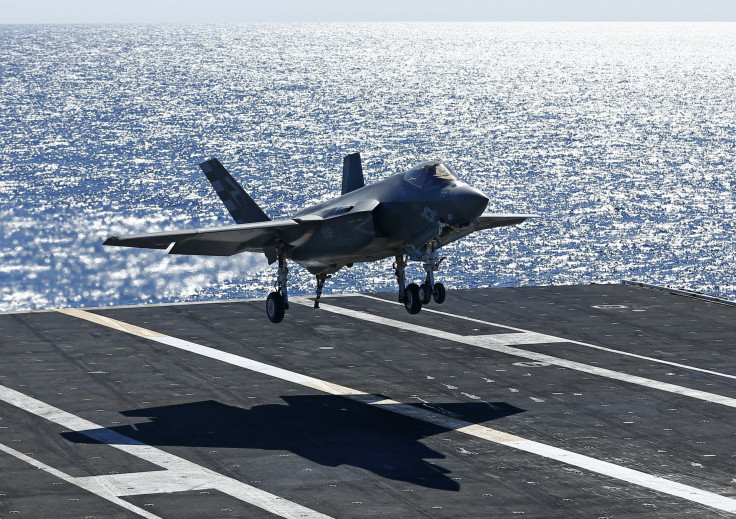US Air Force Fighter Jets To Have Lasers By 2022: New Weaponry To Be Used In Combat

A scene from your favorite science fiction film may just become the new normal for the United States Air Force over the next seven years. By 2022, the Air Force’s entire fleet of fighter jets could be equipped with new laser weaponry technology designed to be used in combat, according to multiple news reports.
A laser boasting more than 100 kilowatts of firepower would significantly enhance a fighter jet's ability to render its target all but useless, but all the positives of this technological advance do come with some negatives,. Aside from the practicality of equipping a normally nimble fighter jet with the burden of a larger weapon apparatus than it is used to, the technology uses up quite a bit of energy to produce an effective laser beam, Breaking Defense reported.
David Hardy, of the Air Force Research Lab, said the laser technology currently would be better served being used from a ship than a jet. “On a ship, I’m probably going to have more SWAP [Size Weight And Power] than I’m going to have on an aircraft,” Hardy said. Another kink that needs to be ironed out a fighter jet’s vibration factor. “Aircraft tend to shake more than a ship does: A ship rolls but it doesn’t vibrate as much,” Hardy added.
PENTAGON: Air Force Fighter To Fire 100 kW Laser By 2022 | http://t.co/fme7wKmfsn pic.twitter.com/9NHaNCdCOX
— . (@sellputs) May 18, 2015The U.S. Navy last year gave a demonstration of how its new laser gun worked at sea. The laser – which was too quick to even be seen by the human eye -- was used to shoot an approaching speedboat, which exploded into flames after being hit, the Washington Post reported. The Navy’s chief of naval research likened it to space technology. “It’s almost like a Hubble telescope at sea,” said Rear Adm. Matthew L. Klunder. “Literally, we’re able to get that kind of power and magnification.”
Retired Lt. Gen. Dave Deptula told Breaking Defense that the pluses of the laser technology clearly outweigh the negatives. The ability to shoot from jets flying in high altitudes – including in space -- is one of them. “We don’t want to weaponize space, but guess what: it’s gonna happen — so we need to be prepared to operate in space and from space,” Deptula said.
© Copyright IBTimes 2025. All rights reserved.






















